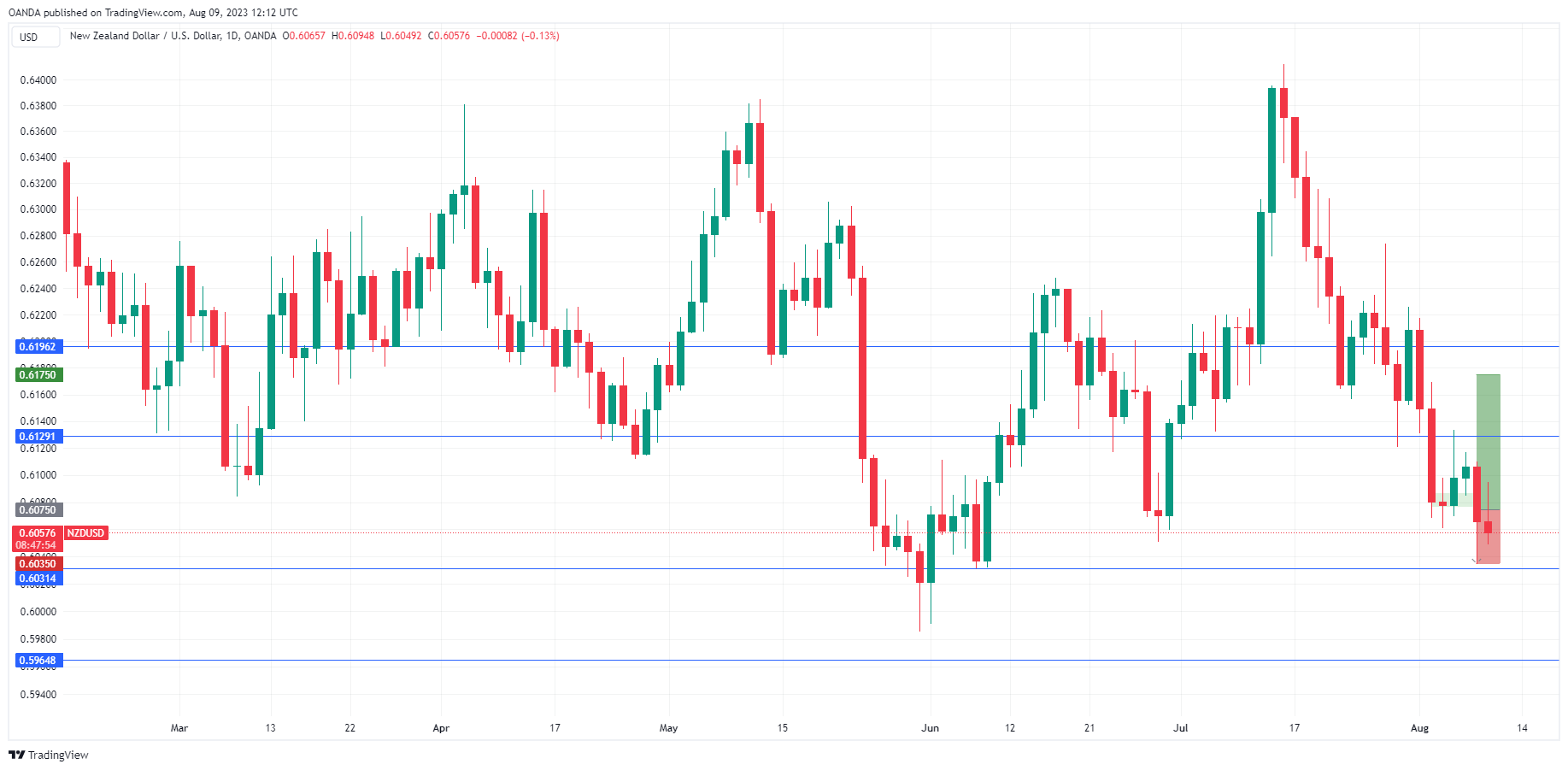- New Zealand inflation expectations rise to 2.83%
- China’s inflation decreases for the first time since February 2021
TheNZD/USD is showing limited movement on Wednesday, trading at 0.6060 in the European session.
New Zealand inflation expectations nudge higher to 2.83%
Like most major central banks, the Reserve Bank of New Zealand has been waging a long and tough battle against inflation by raising interest rates. CPI fell to 6.0% in the second quarter, down from 6.7%. That’s certainly good news, but let’s remember that inflation is still rising sharply and is much higher than the RBNZ’s 2% target.
The central bank is also concerned about inflation expectations, which can become embedded when inflation is high and translate into even higher inflation. Wednesday’s 2-year inflation expectations release showed a rise to 2.83% in the third quarter, up from 2.79% in the second quarter. One-year inflation expectations fell to 4.17% in Q3, down from 4.17% in Q2.
The data indicates that inflation expectations remain high, and that perception could make the life of policy makers more difficult in the fight to bring down inflation. The RBNZ has a long way to go before inflation falls to the 2% target, and that will likely mean further rate hikes unless inflation levels fall sharply. The RBNZ held rates at 5 .50% in July and meets next on August 16th.
China’s CPI indicates deflation
China is experiencing a bumpy recovery, and that is bad news for the global economy. Commodity currencies such as the New Zealand dollar are sensitive to Chinese economic releases and a soft Chinese trade release on Tuesday sent NZD/USD lower by as much as 80 basis points. The bad news continued on Wednesday as China’s CPI for July declined by 0.3% y/y, down from 0.0% in June and just above the consensus estimate of -0.4%. This marked the first decrease in CPI since February 2021 and points to weakness in the Chinese economy, which will likely mean less demand for New Zealand exports, a negative scenario for the New Zealand dollar.

NZD/USD Technical
- NZD/USD continues to put pressure on support at 0.6031. Below, there is support at 0.5964
- 0.6129 and 0.6196 are the next resistance lines
